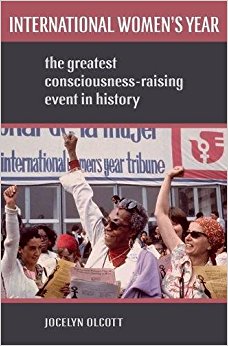About Jocelyn Olcott
Jocelyn Olcott is a Professor of History and Gender, Sexuality & Feminist Studies at Duke University. She is the author of International Women’s Year: The Greatest Consciousness-Raising Event in History (Oxford University Press, 2017), Revolutionary Women in Postrevolutionary Mexico (Duke University Press, 2005) and the co-editor of The Academic’s Handbook, 4th ed. (Duke University Press, 2020) and Sex in Revolution: Gender, Politics, and Power in Modern Mexico (Duke University Press, 2006), which appeared in translation as Género, poder y politico en el México posrevolucionario (Fondo de Cultura Económica, 2009). She has published numerous book chapters and journal articles, including in Gender & History, Journal of Women’s History, and Hispanic American Historical Review.
